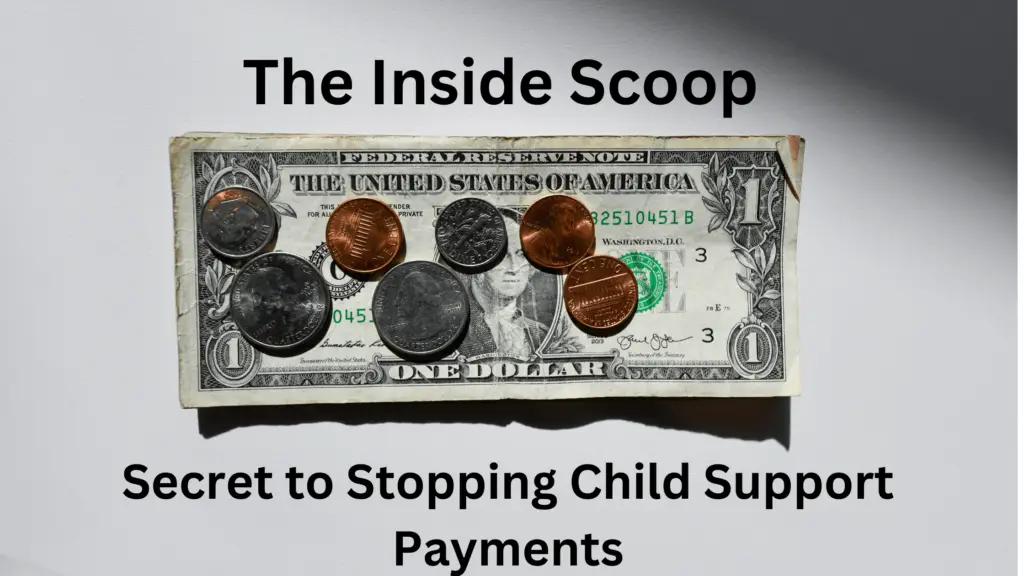Child support is a deeply nuanced and often emotionally charged topic in family law. Many individuals, often struggling financially themselves, ponder if there exists a hidden secret or loophole that could allow them to cease paying child support. It is because of this most find themselves with the query “stop paying child support the secret you need to know” Well, this is not a bad thing at all. Life can happen and cutting off child support becomes the most suitable option.
The Importance of Child Support
Child support laws stand as a fundamental cornerstone of family law, possessing a singular and unequivocal purpose: to guarantee that children receive the necessary financial support for their well-being. These regulations are meticulously designed to prioritize the child’s best interests, placing their welfare above all other considerations. Child support extends beyond a mere fiscal responsibility; it embodies a moral and legal commitment that binds both parents by law.
Children rely on their parents for life’s essentials—food, clothing, shelter, education, and healthcare. Child support serves as the vital link ensuring the consistent provision of these essentials, irrespective of whether the child’s parents remain together or not. It plays a pivotal role in upholding stability in the child’s life, regardless of their parents’ relationship status.
From a legal perspective, child support obligations are not mere recommendations but mandates endowed with the full force of the law. Breaching these mandates can result in severe consequences, including legal penalties, monetary fines, and, in extreme cases, imprisonment. Beyond the legal obligations, there exists a profound moral duty as well.

Stop Paying Child Support the Secret You Need to Know
Luckily, there are various ways in which you can reduce the amount you are required to pay for child support. These ways are:
Job Loss or Change in Employment
One of the most prevalent reasons child support orders can be modified is the occurrence of a significant change in the non-custodial parent’s income. Losing one’s job or experiencing a substantial shift in employment circumstances that affects their capacity to meet child support obligations is a legitimate reason to seek a modification. It is crucial to address this issue promptly through the legal system.
Income Reduction
Even in situations where employment remains intact, a substantial reduction in income can merit a child support order modification. However, it is important to remember that merely asserting income reduction is insufficient. Documenting and substantiating these changes are critical when presenting your case to the court for a fair evaluation of your financial capabilities.
Shared Custody
In scenarios where parents decide to share custody more evenly, it can significantly influence child support obligations. Courts typically consider the time each parent spends with the child when calculating child support. Hence, shared custody arrangements may result in an adjustment of the child support order.
Change in Visitation or Custody Rights
A shift in visitation or custody rights can also have a substantial impact on child support calculations. For instance, if you’ve been granted increased visitation time or have secured full custody of the child, it may lead to a reduction in your child support obligations.
Proving a Significant Change in Circumstances
Regardless of the specific circumstances, it’s vital to provide compelling and concrete evidence to demonstrate the significant change in circumstances that justifies a modification of your child support order. Courts take a thorough and rigorous approach to evaluate the evidence, always with the best interests of the child at heart.
Some common changes in circumstances include:
Health Issues
Scenario: You or your child experiences a severe health issue that results in significant medical expenses or an inability to work.
Evidence: Medical records, bills, and doctor’s statements that demonstrate the extent of the health issue and its impact on your financial situation.
Relocation
Scenario: You or the custodial parent has relocated to a different area, impacting living costs and visitation arrangements.
Evidence: Proof of the relocation, updated living expenses, and potential changes in visitation costs.
Read About: Does Signing a Birth Certificate Legitimize a Child
Changes in Living Arrangements
Scenario: You have incurred increased living expenses due to changes in housing arrangements, such as moving to a smaller residence or experiencing a change in rent or mortgage costs.
Evidence: Lease agreements, mortgage statements, or utility bills reflecting the change in living arrangements and associated expenses.
Disability or Incarceration
Scenario: You become disabled or incarcerated, making it impossible to maintain the same level of income.
Evidence: Medical records, disability determinations, or legal documents indicating your incarceration status.

Seeking Legal Counsel
Navigating the intricate web of child support modifications necessitates professional guidance. Engaging the services of an experienced family law attorney can be instrumental in understanding your rights, obligations, and options. An attorney is your legal compass, helping you steer through this challenging terrain. You might even be surprised to learn that they can give you enlightened ways to stop paying child support. They might be your key to “stop paying child support the secret you need to know. ”
In certain instances, it may be feasible to reach an agreement with the custodial parent through mediation or negotiation. Mediation provides a structured platform for open and candid discussions, which can lead to mutually acceptable solutions. By opting for mediation, you might be able to sidestep costly and protracted court proceedings.
The Sad Truth about Paying Child Support
Although the above mentioned ways can help increasing the chances of reducing or even stopping paying child support, it’s crucial to be aware that there is no secret or magical loophole to evade child support responsibilities. Child support is a legally binding obligation designed to ensure the financial well-being of a child. It is a commitment that both parents must honor, and it serves the best interests of the child. However, there are a few limited circumstances in which child support can be legally terminated, including:
- The Child Reaches the Age of Majority: In most states, child support typically ends when the child reaches the age of majority, which is usually 18, but it can extend to 21 in some states, depending on specific circumstances and state laws.
- The Child Gets Married: If the child chooses to marry before reaching the age of majority, child support obligations may cease.
- The Child Becomes Emancipated: Emancipation occurs when a minor gains legal independence from their parents, often due to factors like financial self-sufficiency or marriage. In such cases, child support responsibilities may be terminated.
- The Parent Paying Child Support Passes Away: If the parent responsible for child support passes away, the obligation naturally ends.
- The Parent Receiving Child Support Remarries, and Their New Spouse Adopts the Child: In cases where the custodial parent remarries, and their new spouse legally adopts the child, child support obligations may be extinguished.
Proactive Steps in Handling Child Support Payments
If you find yourself struggling to meet your child support payments, it’s essential to take proactive steps to address the issue:
- File a Petition to Modify Child Support: If there has been a substantial change in your financial circumstances, such as job loss or a significant reduction in income, you can file a petition with the court to request a modification of the child support amount. It’s crucial to provide evidence of the change in circumstances to support your case.
- Request a Payment Plan: If you’re facing temporary financial difficulties, consider discussing the situation with the parent receiving child support. You can propose a temporary payment plan to address your short-term challenges while ensuring the child’s needs continue to be met.
- Seek Financial Assistance Programs: In cases of severe financial hardship, you may be eligible for assistance from government programs like Temporary Assistance for Needy Families (TANF) or the Supplemental Nutrition Assistance Program (SNAP). These programs can provide temporary relief to help you meet your child support obligations.
Read About: Does Social Security Pay Back Child Support After Death
Exploring Alternatives
Finding Middle Ground with the Custodial Parent
Open and honest communication and cooperation with the custodial parent can often yield mutually satisfactory solutions. It’s imperative to engage in constructive dialogue, discussing any changes in circumstances while seeking ways to ensure the child’s well-being, all while considering the financial capacities of both parents.
Seeking Mediation or Arbitration
Mediation or arbitration can serve as effective methods for resolving child support disputes outside of the courtroom. A neutral third party can help facilitate discussions, uncover common ground, and guide both parents toward an agreement that prioritizes the child’s interests.
Reviewing and Modifying Child Support Orders
When legitimate changes in circumstances transpire, it is vital to follow the proper legal process for modifying child support orders. Working in tandem with an attorney and presenting compelling and well-documented evidence can significantly enhance your chances of securing a fair modification that aligns with your present situation.
Conclusion
The key to discontinuing child support payments isn’t a hidden shortcut or exploiting a legal gap. Instead, it requires adopting a considered, knowledgeable, and lawful strategy. Child support regulations are in place to protect the child’s best interests, and they deserve reverence and adherence from everyone concerned. Above all, the primary focus must stay on the child’s welfare, ensuring that any modifications to child support orders are pursued through the correct legal avenues. Seeking advice from a family law attorney, staying informed about your rights and obligations, and exploring solutions that promote collaboration and equity are indispensable steps in this process.







